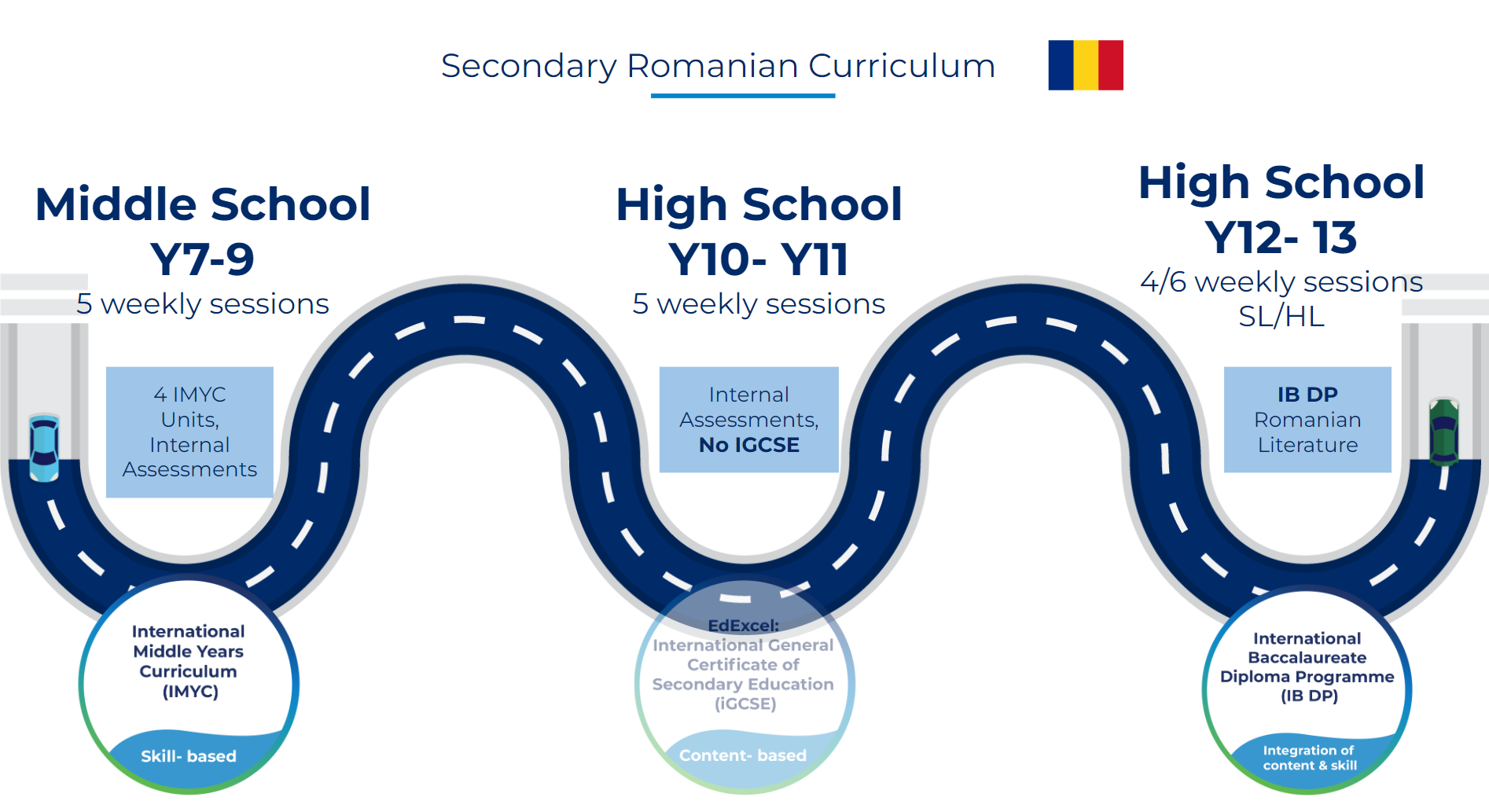At Verita International School, we believe that language is the foundation for all learning.
Language Philosophy and Profile
At VIS we believe that language is the foundation for all learning. We understand that language, our major means of thinking and communicating, is fundamental to inquiry and learning and underpins the whole curriculum.
At VIS we believe in the development of language and literacy for all learners so that they can realize their full potential and become successful and responsible global citizens.
The school’s student population is multinational, representing approximately 10 nationalities and languages.
VIS respects its diverse community by supporting the development of bilingual or multilingual students by offering course options in the host country language, Romanian, and selected Modern Languages (French and Spanish), and by providing a wide range of learning opportunities to ensure all students develop full academic proficiency in English.
VIS provides programmes for the development of English for those students who do not possess full academic proficiency (ELL).
VIS’s instructional language is British English. Student language needs at VIS are diverse; as a result, all teachers are teachers of language and instructional strategies and consciously differentiate, integrating the communication domains of listening, speaking, writing, reading, viewing, and presenting into the curriculum.

Romanian and Modern Foreign Languages (MFL)
PRIMARY
In the Early Years the language of instruction is English. Of course, according to our pupils’ emotional needs, simple words and phrases in the mother tongue could be used to facilitate the adjustment to the school environment.
In years 1 and 2, the school offers 2 weekly Romanian language classes for all the students. In spring(April-May), all the students enrolled in year 2 have to choose between Romanian and French for the next academic year.
Starting with year 3, during the Languages classes, the students will be divided into distinct groups: Romanian and French, which will be offered simultaneously during the Languages slots.
Therefore, the year 3 to 6 students will study French OR Romanian in three weekly sessions.
If your child chooses French, there will be no Romanian classes during Curriculum time and vice versa, if the additional language is Romanian, a third language can be studied under the extracurricular program. Upon request and availability, we provide Romanian Language afterschool workshops, as well as Modern Foreign Language classes (Spanish, German, French etc)
We strongly recommend not switching languages. It is essential for the students to have continuity because at the end of High School they will have to be confident in their additional language skills for the IBDP exams. However, only for Primary up to Year 5, in extraordinary circumstances, at the end of the school year, we can analyse potential migration requests from one language to the other.
SECONDARY
Middle Years
The students have 5 weekly sessions of Romanian OR French, upon their previous choice in Primary. In addition, all the students will take Spanish as the third language in 3 weekly sessions.
Years 10-11
The students continue to study French or Romanian (5 sessions). At the end of Year 11, the students enrolled in French can take the IGCSE exam. For Romanian, the assessments are only internal and there is no IGCSE exam. In addition, they can choose between Spanish and Art (3 weekly sessions). If they choose Spanish, they can also take the IGCSE exam in Spanish.
The curriculum focuses on acquiring the language skills acquired for the iGCSE exam.
For our IBDP program, we offer the following options:
- Romanian Literature (native speakers), Standard Level and High Level
- French B – Standard Level and High Level
- French Ab-Initio -, Standard Level (currently online)
- Spanish Ab-Initio – Standard Level (currently online)
- Spanish B – Standard Level (currently online)
- Mandarin Ab-Initio – Standard Level (currently online)
- Self-taught native languages, Standard Level
English Language Learner Support (ELL)
English is the language of instruction at VIS. This means educational programmes are taught in English from Early Years through high school.
If a student enters school in Year 2 or above without adequate English skills (A2 minimum) they will receive English as an Additional Language (EAL) support with one of our EAL teachers, in agreement with the class teachers regarding the teaching slots.
From Year 2 to Year 6, students benefit from both in-class EAL support as well as out-of-class interventions, depending on the language needs of the student and their class schedule. Our aim is to support the students to be able to join in with whole-class English teaching where possible. When this is not possible, our EAL teachers provide individual and small-group instruction to build confidence and fluency with English. At the end of each semester, the child is reassessed as to whether these sessions need to continue the following semester.
In Secondary,we aim to have a combined push-in/pull-out system. The students can attend their Languages program as normal.



Ready to send your child on
the learning adventure of a lifetime?
We develop your child’s talents, build friendly relationships in a safe environment, and make learning enjoyable. Verita is the best fit for you if you believe that your children are part of a generation that needs to be independent, creative and ready for a changing world.

